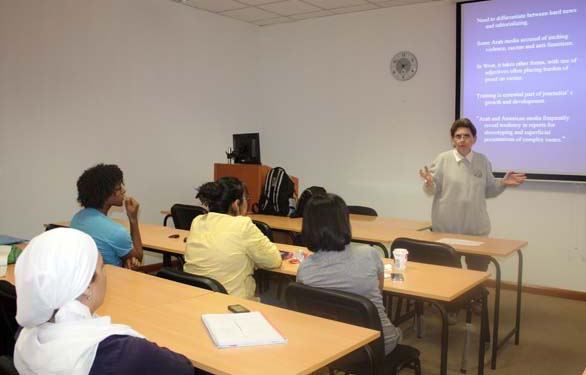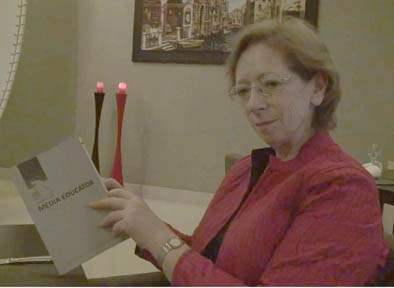Journalism education and training in the MENA region need a shot in the arm to ensure graduates and practitioners attain and maintain professional standards, students at the University of Wollongong in Dubai were told.
“Journalists are like emergency room doctors,” Media Unlimited director Magda Abu-Fadil said, addressing a joint class of postgraduate students in the Master of Media and Communications and Master of International Studies programs in October 2012.
They treat and save (news) patients, work on tight deadlines, can’t afford to make mistakes, and if they do, the results could be catastrophic, she explained.
Abu-Fadil said there was often a “disconnect” between what is taught and what the journalism market needs, given the fast-changing landscape, globalized nature of the industry, and introduction of digital technologies in all facets of the profession.
On the academic front, Abu-Fadil noted the lack of up-to-date courses, newsrooms and regular student on-campus newspapers, radio and/or TV stations and websites in most Arab countries.
“The introduction of online journalism courses has been very slow,” she noted, adding that she had co-authored the UNESCO-sponsored book “Model Curricula for Journalism Education” as a template for developing countries, which is available in nine languages.
She lamented the lack of attention to the learning of languages, geography and history, notably for journalists choosing careers as foreign correspondents, and said traditional Arab curricula do not encourage critical thinking.
On another front, Abu-Fadil advised the students not to be satisfied with their degrees but to seek regular training to upgrade and update their knowledge and skills.
She underlined the importance of ethical media practices, attention to detail, inclusion of context in all stories, and, the importance of integrating multimedia and social media in their coverage.


